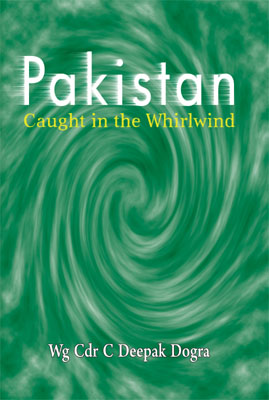There is an ethnic minority group of about 49 million people called Pashtun mostly living in Pakistan. Many of them live in Waziristan in the west which unfortunately is the battlefield between Pakistani troops and Taliban militants, many of whom are also ethnic Pashtun. Pakistani army has unleashed a reign of terror on these communities. As a result, thousands of people have disappeared without a trace. There are no concrete numbers available, but estimates from Pashtun organizations say as many as 30,000 people have disappeared. The Pakistani Human Rights organizations, however, cite the number to be around 5000.
Amnesty International, in a statement on March 19, 2018 urged Pakistan to resolve hundreds of cases of enforced disappearances: “No one has ever been held accountable for an enforced disappearance in Pakistan,” the watchdog organization said. “The disappeared are at risk of torture and even death. If they are released, the physical and psychological scars endure. If they are killed, the family never recovers from their loss. Disappearances are a tool of terror that strikes not just individuals or families, but entire societies.”
Also the UN Working Group on Enforced or Involuntary Disappearances has more than 700 pending cases from Pakistan. The Pakistan Government-run Commission of Inquiry on Enforced Disappearance claims to have investigated almost 5000 missing persons.
Pakistani Parliament in May 2018, passed a new law incorporating Waziristan and other areas into a neighbouring province and inject $850 million a year into the region for ten years to build Govt infrastructure and boost economic development.
The new measures are empty gestures so far as for the families whose loved ones have disappeared. The measures are an attempt to defuse widespread anger of the local community of the way Islamabad has treated them.
It all started in January 2018 after police apprehended Naqeebullah Mehsud, 27 years, in the southern Pakistani city of Karachi suspecting him to be a Taliban militant. Later Mehsud died in police custody. Meshud’s family says that he was a shopkeeper and aspiring model and had no links to terror.
Meshud’s death sparkred the Pashtun Tahaffuz Movement’s call for an end to extrajudicial killings, forcible disappearances, racial profiling, landmine removal and the state treating them like second-class citizens. The Pashtun Tahafuz Movement (PTM) embodies the alienation of Pashtun over many issues including the role of the army in sanitising the area and profiling the state tribes as terrorists. It has also accused the Pakistani army to create safe heavens for the terrorists in their area. The PTM wants immediate removal of British time Frontier Crime regulation (FCR) and removal of thousands of check posts for ethnic profiling and branding the entire community as ‘suspected terrorists’.
Pakistan could never create State institutions that would provide equal rights to various ethno-linguistic groups. It has been more inclined to project Islam as the foremost common identity of the State. This left any aspiration of ethno-linguistic identity for seeking political rights seen as anti Islamic. It rather imposed Islam as the dominant monolithic identity and Urdu as the national language with utter disregard to cultural and ethno-linguistic diversity of Pakistan. But these measures are haunting Pakistan now and given rise to Pashtunistan nationalism. The ongoing Pashtun movement has exposed the decades old alienation of the community.
Historically, Balochistan, KP and FATA have never accepted the nature of the state and national identity propagated by Islamabad. Balochistan has an ongoing separatist movement since 1950s. Khyber Pakhtunkhwa (KP) too has serious problem and has witnessed an assertion of Pashtun identity.
Talibanization in Pakistan is a manifestation of Pashtun nationalism. Pashtuns composed primarily of ethnic Punjabis, see a rival ethnicity of Khans and Mallik clashing with them. The bigger danger is of Taliban and Pashtun nationalism merging. If that happens Pakistan is certain on the path of disintegration. The Pashtun movement has the potential to rally behind the Taliban leadership to achieve their goal of a united and independent Pashtunistan and this will be the final nail in the Pakistani coffin.





